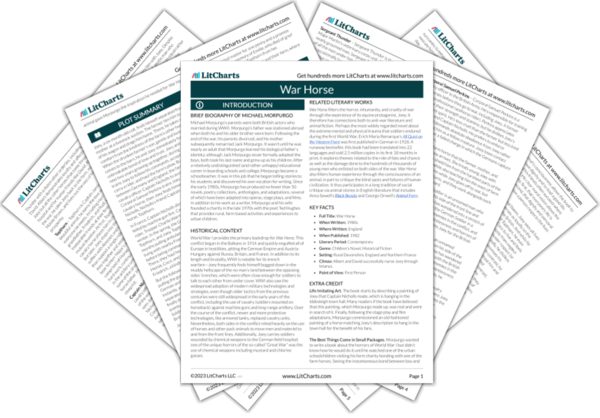It’s been a day of losses for Joey (and Topthorn) but they both retain their natural hopefulness despite their fatigue and the foreignness of their surroundings. And although the day began with a parting, it ends with a meeting, reminding Joey (and readers) of how many things make the world hopeful and welcoming, even in the darkest of times. Emilie and her grandfather will brighten the lives of Joey and Topthorn with their love and care.
